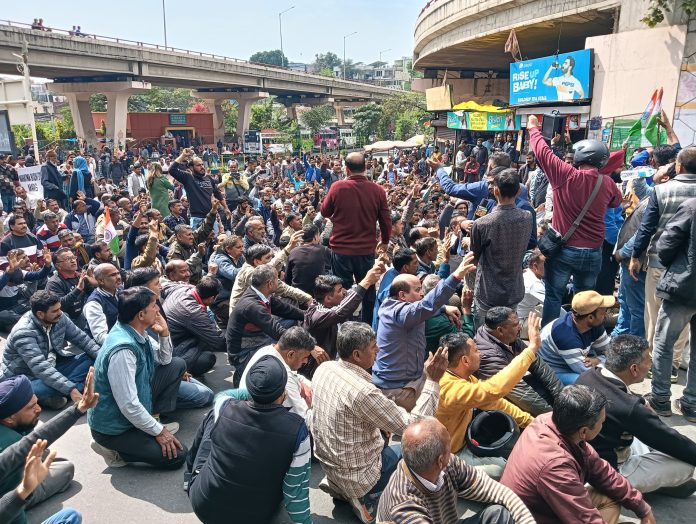The uproar in the Assembly over the issue of daily wagers underscores the perennial neglect and politicisation of their grievances. The walkout by BJP MLAs and the heated exchanges between the ruling NC and the opposition BJP reflects a disturbing pattern-one where workers’ concerns are used as political leverage rather than addressed with genuine intent. At the heart of the controversy lies the demand for regularisation and timely wages of daily wagers, an issue that has persisted across successive Governments. CM’s appeal for dialogue with the recently formed Government panel is a standard administrative response, which fails to instil confidence among the protestants. While the formation of a committee signals an acknowledgement of the issue, the lack of concrete measures to provide immediate relief renders it ineffective. The workers’ frustration, leading to strikes and protests, is therefore understandable.
The BJP’s accusations that the NC is merely dodging the issue do not absolve the opposition from its share of responsibility. The BJP was part of the previous ruling alliance for three years and had initiated steps such as forming a high-power committee and drafting SRO-520 to address the concerns of daily wagers. However, the failure to implement these measures before the collapse of the Government left the issue unresolved. Additionally, revelations about regional disparities in past regularisations expose another layer of injustice, further fuelling discontent among the workers. What is most disheartening is the consistent blame game that dominates political discourse instead of solution-orientated discussions. The argument that the BJP failed to address the issue during its rule is an attempt to deflect rather than resolve. Similarly, the opposition’s insistence on Government inaction ignores the complexities of governance and budgetary constraints.
For the daily wagers, this political theatre offers no relief. They continue to endure job insecurity, delayed payments, and an uncertain future. The Government must move beyond forming committees and demonstrate real commitment-perhaps by fast-tracking the committee’s recommendations, setting a timeline for implementation, and ensuring fair regional representation in regularisation. The crisis has to be resolved; the sooner, the better.


